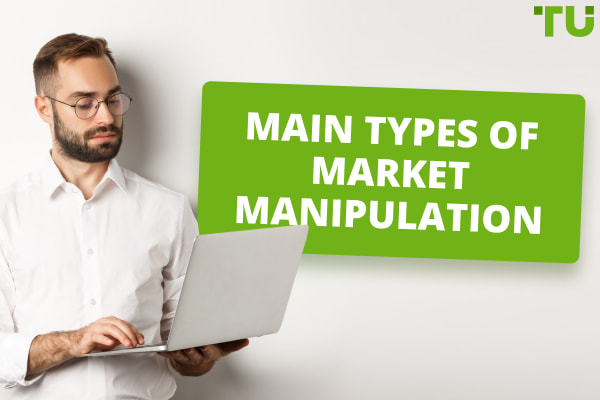Forex Trading vs Gambling. How Do They Compare?
Professional Forex trading is often compared to gambling by those unfamiliar with the complexity of Forex, but this is a misconception. Here we’ll analyze the distinctions between the two, looking at how Forex traders make money as opposed to gamblers, and whether Forex trading is permissible in Islam.
Forex trading is often compared to gambling by those who don’t fully understand the intricacies of the Forex market and the in-depth understanding required to work within it. While on a surface level the similarities might seemingly indicate that Forex works in the same manner as gambling, they are actually two very different ball games. Gambling is based on almost complete randomness, and is even rigged at times to give the house a mathematical advantage. Forex, on the other hand, follows patterns and can be studied to give traders and investors a tactical advantage and continuously positive results. In this article I’ll be looking at what distinguishes Forex trading from gambling, how professional traders make money in Forex, and whether Forex is seen as gambling in Islam.
-
Is categorizing Forex trading as a form of gambling accurate?
No. Forex trading is based on cross-market trends, in-depth knowledge, risk-management, and emotional discipline. Gambling is based on randomness, luck, impulsivity and entertainment.
-
Is Forex trading better than gambling?
As a means of making a living, making profit, or ensuring a return on investment, yes. Gambling could only be said to be better in terms of entertainment or accessibility. Forex trading takes patience, hard-work, discipline, and commitment.
-
How does Islamic finance perceive Forex trading in relation to gambling?
Generally, in Islamic law, Forex trading is not categorized as gambling, as the Quran specifies that uncertainty, speculation and interest in transactions are Haram (forbidden). Forex trading when compared to gambling isn’t based on uncertainty or speculation, and Islamic markets remove interest from trading.
-
What aspects differentiate Forex trading from gambling, especially in terms of decision-making and skill?
Professional Forex trading involves strict risk-management techniques, emotional regulation, and continuous development of knowledge. Gambling is a recreational activity rigged in favor of the house, and takes little to no prior knowledge to engage in.
Forex trading vs gambling: analyzing the distinctions
When first getting involved in Forex trading, it can seem a lot like gambling, especially without deeper knowledge. You open a position on a currency pair with the hope that it will increase in value, much like how in gambling you make a bet with the hope that it will result in profit. If things turn out in your favor, you end up with more money than when you started. Conversely, if your expectations are not met and the value of your trade goes down, or your bet misses, you lose money. Those resemblances are only skin-deep though, and the similarities end there. Let’s look at some of the distinctions between gambling and Forex trading.
Risk reduction: Forex is like gambling when traders engage in blind high-risk trading, instead of calculating their every move. If you’re opening high-risk positions, the profit on a successful trade will be much higher, but the chances of that happening decrease. All decision-making should be based on a predetermined strategy and calculated risks
Long-term vs short-term: In gambling, each move and outcome are completely random and are not part of a greater trend. A roulette wheel can land on black 50 times in a row without any indication of following a pattern. In Forex, short-term candlestick charts - (1-minute sticks) may give the impression that currency pairs are moving at random making trades seem luck-based. However, zooming out to study long-term trends reveals patterns, and with the right strategy and trend analysis, traders can make accurate market predictions
Legality & security: Forex trading is legal across the entire globe (except for those under Sharia law); gambling is not. Government regulations are in place to monitor Forex trading in every country, which means investors are protected and brokers have to adhere to certain rules. Gambling on the other hand, is completely illegal in some countries, and has very different regulations from nation to nation. This makes Forex trading much safer than gambling
Psychological factors: The emotions that result from both gambling and Forex can appear similar. Greed, fear, anxiety; these all can affect decision making in both. The difference is that Forex emphasizes discipline, patience and self-control. Gambling revolves largely around impulse, and reactions to wins and losses
Skills & knowledge: Forex trading is a skill that can be developed, by building up knowledge and making educated decisions. Traders continuously learn to improve their ability to succeed. Gambling in most cases does not require much knowledge, can be done recreationally and is based on luck
The similarities between Forex trading and gambling are superficial, in the same way that politics and business, or cricket and baseball are the same. That is, once you take a closer look at the two, you can see that Forex is not only very different to gambling, but also more legitimate, more profitable, and based on skill.
Parallels Between Forex and Games of Chance
When examining Forex trading and gambling side-by-side, we can identify some clear similarities between the two high-risk, high-reward activities.
Firstly, both Forex trading and gambling involve risking real money on outcomes that are unpredictable. A trader cannot know for certain how currency pairs will fluctuate just as a poker player cannot be sure what cards they will be dealt. The outcomes depend on shifting dynamics of global markets and lucky or unlucky spins at the roulette wheel.
Additionally, both pursuits provide a genuine thrill from uncertainty. The adrenaline flows freely for Forex traders and gamblers alike as they watch to see if their speculative decisions pay off. The emotional ups and downs associated with wins, losses, and near-hits provide an authentic rush that keeps players and traders coming back.
Finally, money management skills are equally imperative to success in Forex and gambling. Those participating in either activity must judiciously and systematically allocate their bankroll or trading account balance to match their style and risk tolerance. Betting too big or overleveraging can quickly wipe out one’s stake. Understanding this volatile balance sheet is key.
So while they have some striking differences, we can see Forex trading and gambling do share some core DNA when it comes to uncertainty, thrill-seeking, and thoughtful money management.
How do professional Forex traders make money?
Professional Forex traders make money in several ways when compared to gambling.
Analysis vs luck: Traders rely on in-depth technical and fundamental analysis, using charts and data to make well-informed decisions. Gamblers predominantly use luck and chance and have little to no control over the results
Risk management vs high risk: Risk management is a core aspect of Forex trading, and traders use tools like stop-loss and take-profit orders to manage their risk and exposure. Gambling favors high-risk behavior, encouraging the chasing of losses which lead to financial setbacks
Strategy vs impulse: Professional traders use well-defined Forex strategies and plan out their approach to decide when to open or close positions. Gambling is based on impulse and even “hunches” or “gut-feelings”
Consistency vs. inconsistency: Professionals aim for consistent profitability over the long term. They focus on maintaining a positive trading track record by following a pre-set plan using discipline and strategic blueprints. Gamblers see inconsistent results, with wins and losses occurring unpredictably
In summary, successful professional Forex traders use technical methods, strategies, and self-discipline to make money, often turning Forex trading into a career. Gamblers mostly gamble recreationally, basing decisions on impulse and emotions, and do not make a living from gambling.
Can Forex trading be considered as gambling in Islam?
In the Holy Quran, Islamic law dictates that gambling and “riba” are “haram”, meaning forbidden. Riba refers to unequal exchanges or charges for borrowing, and as a result Islamic Forex markets have emerged that don’t charge interest for holding overnight positions. While the industry has adapted to cater to Islamic law to avoid “riba”, there is still contentious debate amongst Muslim scholars on whether Forex trading constitutes gambling.
Generally, Forex trading is considered halal, or acceptable under Islamic law, so long as all parties abide by Islamic rulings. To ensure a trade is halal, the currency exchange must be made in the same setting as the initial contract signing, without delay, and without any interest.
To understand why Forex trading is not haram, it’s important to highlight how it’s different to gambling, which we have explored above. Forex trading is not gambling.
According to Islamic law, any transaction that involves uncertainty (gharar), speculation (maisir), or interest (riba) is considered haram. Since Forex trading involves in-depth analysis and market knowledge, it is not based on uncertainty. With the usage of strict risk-management strategies and rules followed for the opening and closing of trades, traders avoid engaging in high-risk speculation. Excessive leverage is considered haram as it makes trading more akin to gambling. Forex trading becomes haram when traders treat it as a game and engage in reckless, unpredictable trades.
Best Forex brokers 2024


Glossary for novice traders
-
1
Day trading
Day trading involves buying and selling financial assets within the same trading day, with the goal of profiting from short-term price fluctuations, and positions are typically not held overnight.
-
2
CFD
CFD is a contract between an investor/trader and seller that demonstrates that the trader will need to pay the price difference between the current value of the asset and its value at the time of contract to the seller.
-
3
Leverage
Forex leverage is a tool enabling traders to control larger positions with a relatively small amount of capital, amplifying potential profits and losses based on the chosen leverage ratio.
-
4
Forex Trading
Forex trading, short for foreign exchange trading, is the practice of buying and selling currencies in the global foreign exchange market with the aim of profiting from fluctuations in exchange rates. Traders speculate on whether one currency will rise or fall in value relative to another currency and make trading decisions accordingly. However, beware that trading carries risks, and you can lose your whole capital.
-
5
BaFin
BaFin is the Federal Financial Supervisory Authority of Germany. Along with the German Federal Bank and the Ministry of Finance, this government regulator ensures that licensees abide by eurozone laws.
Team that worked on the article
Jason Law is a freelance writer and journalist and a Traders Union website contributor. While his main areas of expertise are currently finance and investing, he’s also a generalist writer covering news, current events, and travel.
Jason’s experience includes being an editor for South24 News and writing for the Vietnam Times newspaper. He is also an avid investor and an active stock and cryptocurrency trader with several years of experience.
Dr. BJ Johnson is a PhD in English Language and an editor with over 15 years of experience. He earned his degree in English Language in the U.S and the UK. In 2020, Dr. Johnson joined the Traders Union team. Since then, he has created over 100 exclusive articles and edited over 300 articles of other authors.
Mirjan Hipolito is a journalist and news editor at Traders Union. She is an expert crypto writer with five years of experience in the financial markets. Her specialties are daily market news, price predictions, and Initial Coin Offerings (ICO).











